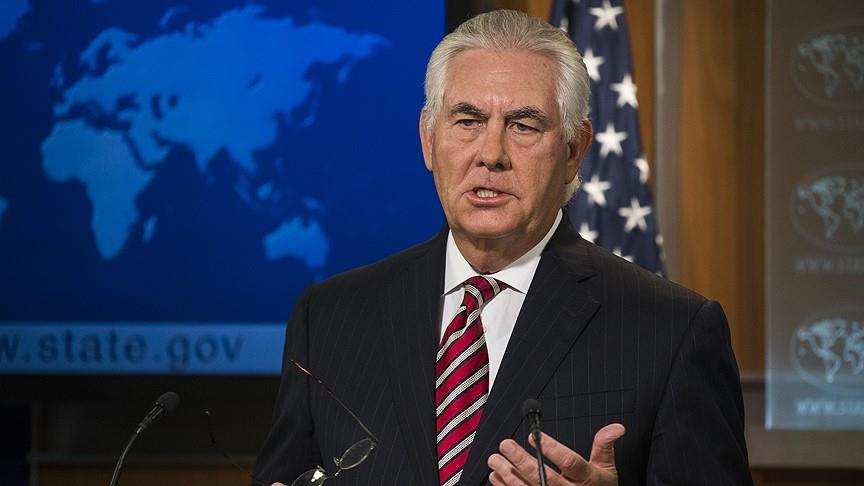
By Safvan Allahverdi
WASHINGTON
Imposing sanctions against Myanmar over the ongoing Rohingya crisis are "not advisable" at this time, the U.S. Secretary of State Rex Tillerson said on Wednesday.
"I think broad-based economic sanctions against the entire country is not something that I would think would be advisable at this time," Tillerson told reporters during a joint press conference with Myanmar leader Aung San Suu Kyi in the capital Naypyitaw.
A security crackdown launched in the northern part of Rakhine on Aug. 25 has led to more than 617,000 Rohingya Muslims fleeing to neighboring Bangladesh.
The on going ferocities have been referred to as “ethnic cleansing” by the UN, among others.
"All of that has to be evidence based," Tillerson said. "If we have credible information that we believe to be very reliable that certain individuals were responsible for certain acts that we find unacceptable, then targeted sanctions on individuals very well may be appropriate," he added.
Speaking in September, Bangladeshi Foreign Minister Abul Hasan Mahmood Ali said around 3,000 Rohingya had been killed in the crackdown.
"The crisis itself will not end until a lot of very deep issues are addressed, and that will take time," Tillerson however, said after a question whether the U.S. is considering imposing sanctions against Myanmar in case the ongoing violence against Rohingya Muslims does not end.
He said the U.S. wants to see Myanmar succeed and had a hard time seeing how sanctions help resolve the crisis, referring to the possible sanctions, which if considered would be imposed by the U.S. Congress.
He noted that he would review the sanctions legislation back in Washington.
Some U.S. lawmakers last month proposed legislation that would impose sanctions and travel restrictions against Myanmar’s military over violence in Rakhine state. However none of the sanctions would target the Nobel Peace prize winner Suu Kyi, who is also accused of being part of the ongoing violence.
Indicating that no sanctions were needed, Tillerson however, said the U.S. was "distressed" by the suffering of Rohingya refugees fleeing to Bangladesh.
"Scenes of what occurred are just horrific," he said, adding that it was the biggest challenge Myanmar had faced since the transition from military rule.
Tillerson also stated that the U.S. would provide more aid to help both Bangladesh and Myanmar address the humanitarian crisis.
When asked why the State Department does not use the term "ethnic cleansing", despite the Congress's recommendation, Tillerson said the motivations behind the violence in Rakhine State needs to be known.
Despite describing the ferocities as a staggering humanitarian scandal, Tillerson said they would continue to evaluate the developments in order to find out whether it meets all of the criteria for ethnic cleansing.
Anadolu Agency website contains only a portion of the news stories offered to subscribers in the AA News Broadcasting System (HAS), and in summarized form. Please contact us for subscription options.







